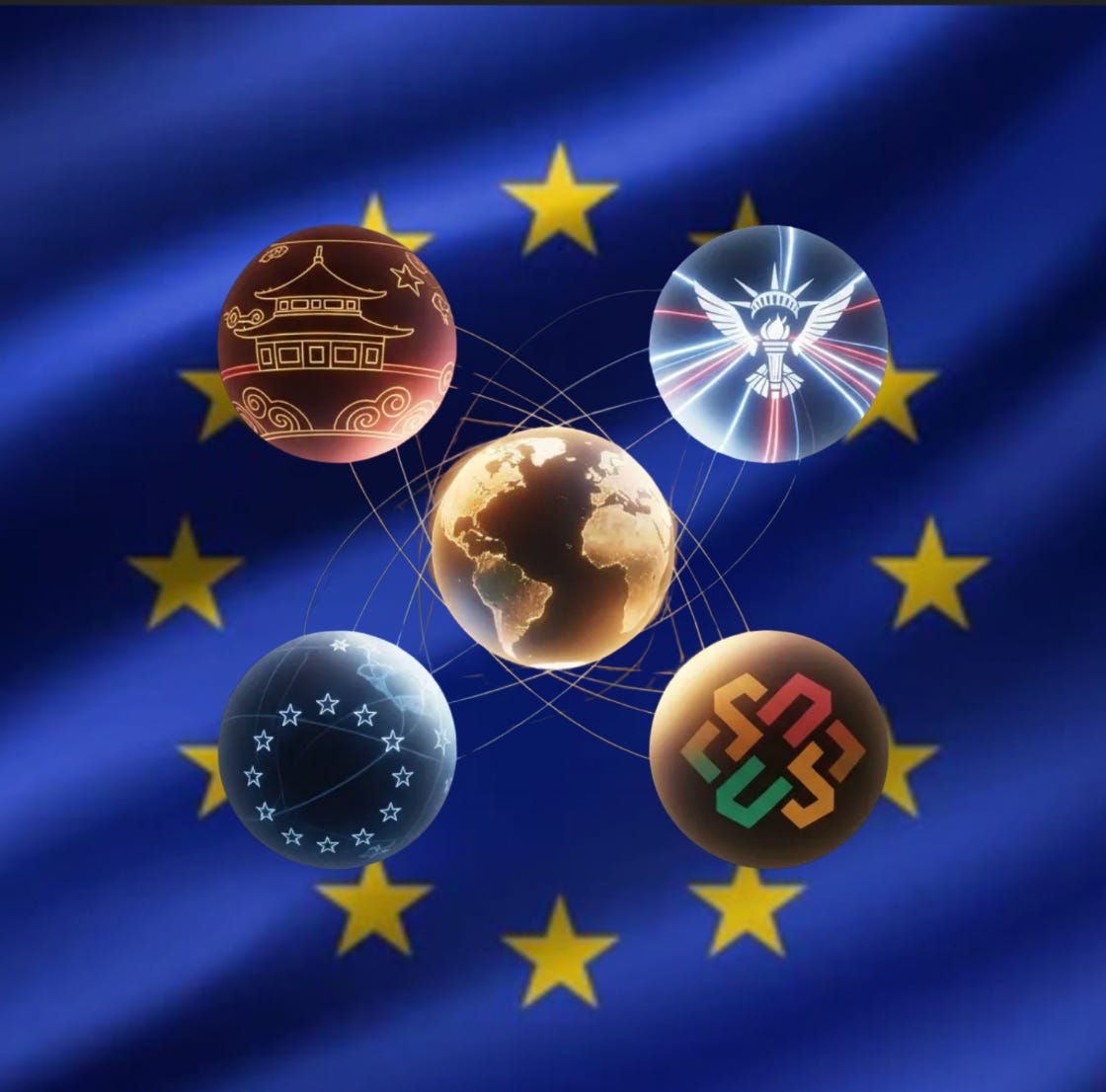Wednesday Edition — The European Union: The Cooperative Power
Four powers, four choices, one world
What makes the European Union one of the world’s new four powers? It is the world’s largest single market.
The European Union’s strength comes from economic scale. With more than 440 million consumers and a combined GDP of over $18 trillion, it sets the trade standards that shape the global economy. Companies that want to sell in Europe must follow its r…



